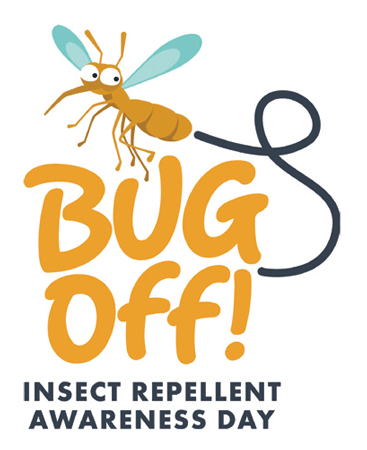Travel health update
Jane Chiodini
Jane Chiodini
MSc(Travel Med), RGN, RM, FFTM RCPS(Glasg)
www.janechiodini.co.uk
Spread of wild polio; Yellow fever advice and recommendations - updated; Bug Off campaign to raise awareness of bite prevention
IMPORTANCE OF POLIO
The Global Polio Eradication Initiative (GPIE) has been in progress since 1988 with strides in success achieved around the world. However, in early May 2014, the World Health Organization (WHO) Committee advised that the international spread of polio to date in 2014 constitutes an ‘extraordinary event’ and a public health risk to other States, for which a coordinated international response is essential. Wild polio virus has been exported from Pakistan into Afghanistan, from Syria into Iraq and from Cameroon into Equatorial Guinea. The current clinical update posted on NaTHNaC advises that travellers to Afghanistan, Cameroon, Equatorial Guinea, Ethiopia, Iraq, Israel, Nigeria, Pakistan, Somalia and Syria, should be advised to have a booster dose of polio-containing vaccine if they had not received vaccination in the past 12 months and they are travelling to settings with extremely poor hygiene (e.g. refugee camps), or likely to be in close proximity with cases (e.g. healthcare workers), and/or visiting for 6 months or more. Other shorter term travellers (4 weeks to six months) to these countries should ensure that they are up to date with polio immunisation, including a booster if none has been received for ten years. We no longer have oral polio vaccine for routine use in the UK, so this will entail giving inactivated polio vaccine in a combination vaccine (with diptheria and tetanus) if required. It is expected that further updates will be posted in due course so users should check the website at www.nathnac.org on a regular basis – or subscribe to updates
YELLOW FEVER IN THE GREEN BOOK
Chapter 35 on yellow fever in the Green Book was updated at the end of April 2014. On the topic of reinforcing immunisation, it says that while re-immunisation every ten years has been recommended, the WHO Strategic Advisory Group of Experts (SAGE) on Immunization has stated that (with some exceptions) protection lasts for at least 35 years, is likely to be much longer and could be life-long. Therefore revaccination should be offered to those needing a valid International Certificate of Vaccination or Prophylaxis (ICVP), currently still valid for 10 years, and to those who received their initial yellow fever vaccination:
- when aged less than two years old
- during pregnancy
- while infected with HIV
- when immune suppressed
- before undergoing a bone marrow transplant
In certain situations where there is concern about a traveller’s risk of exposure to yellow fever (e.g. working/living for an extended period in a high risk setting) a booster dose of YF vaccine can be considered – expert advice can be sought from NaTHNaC or TRAVAX. A useful flow chart has been produced to help the clinical decision for need of vaccine. The updated chapter also states that in the case of co-administration with MMR vaccine there are some data to suggest sub optimal antibody responses against yellow fever, mumps and rubella antigens. It is now recommended that, where possible, these two vaccines should be given 28 days apart. See https://www.gov.uk/government/publications/yellow-fever-the-green-book-chapter-35
BUG OFF RESOURCES!
The first ever ‘Insect Repellent Awareness Day’ launched on Tuesday 3 June to highlight the importance of using repellents to protect against insect bites and the diseases they carry. Scientists from Arthropod Control Product Test Centre (arctec) at the London School of Hygiene and Tropical Medicine are engaged in activities as part of a wider public health and education campaign. Look out for their new website (see http://www.bug-off.org/). It’s timely for me as I’m developing a presentation on ‘Practical Aspects of Bite Prevention’ for a meeting between NaTHNaC and the Royal Society of Tropical Medicine and Hygiene (RSTMH) in Liverpool on 25 June 2014 – see https://rstmh.org/events for more details. The head of artec, Dr James Logan appears in a useful video on tick awareness at https://www.youtube.com/watch?v=m2avEmmLeEA and he is also speaking at my joint RCN travel health conference ‘A Return Ticket’ on 13 September 2014 – see http://www.rcn.org.uk/newsevents/event_details/rcn_eventsms/jth14 .
Related articles
View all Articles
